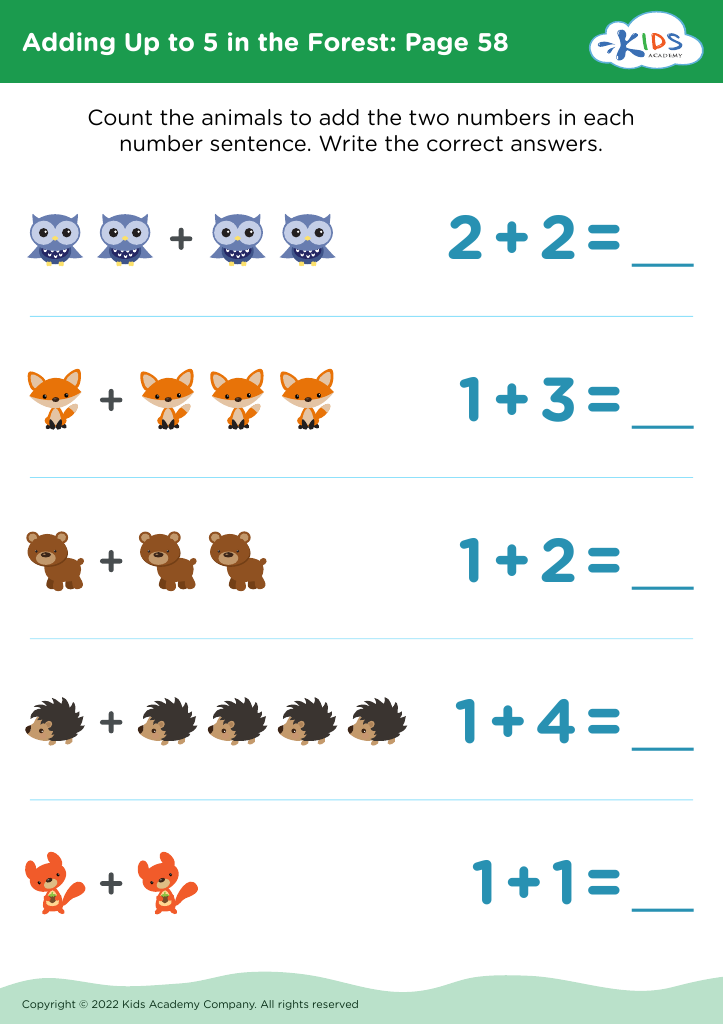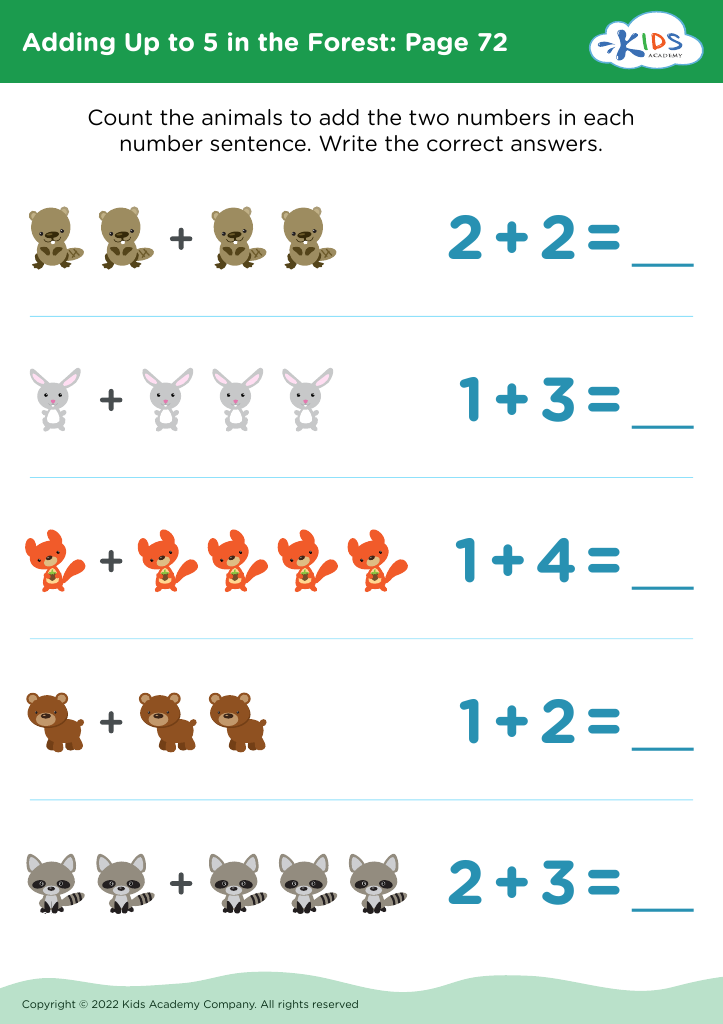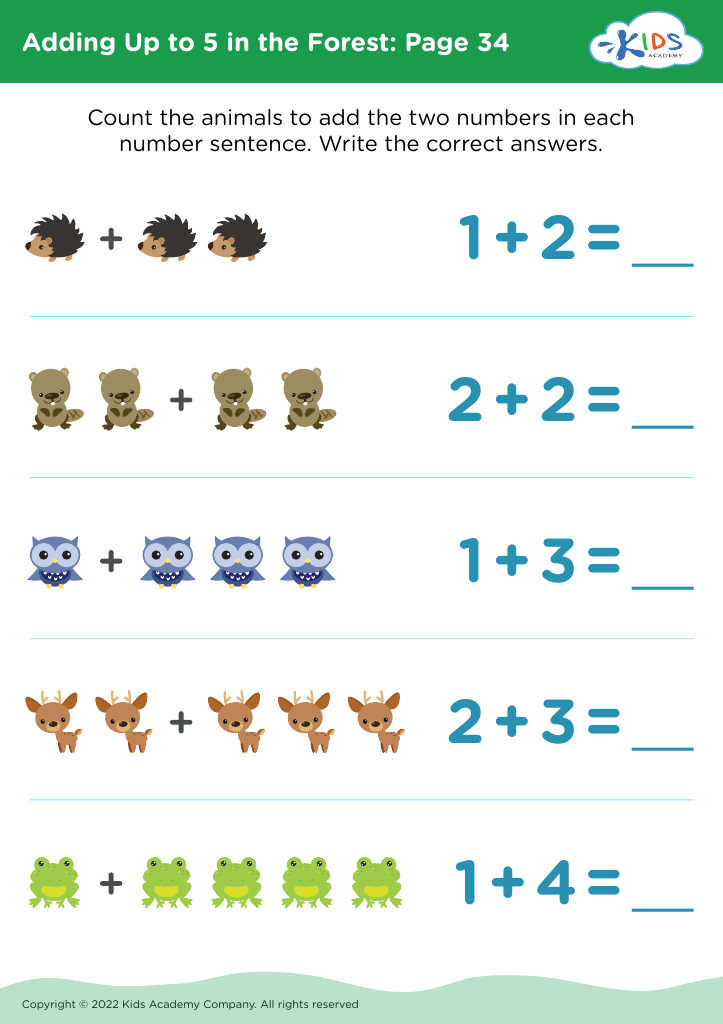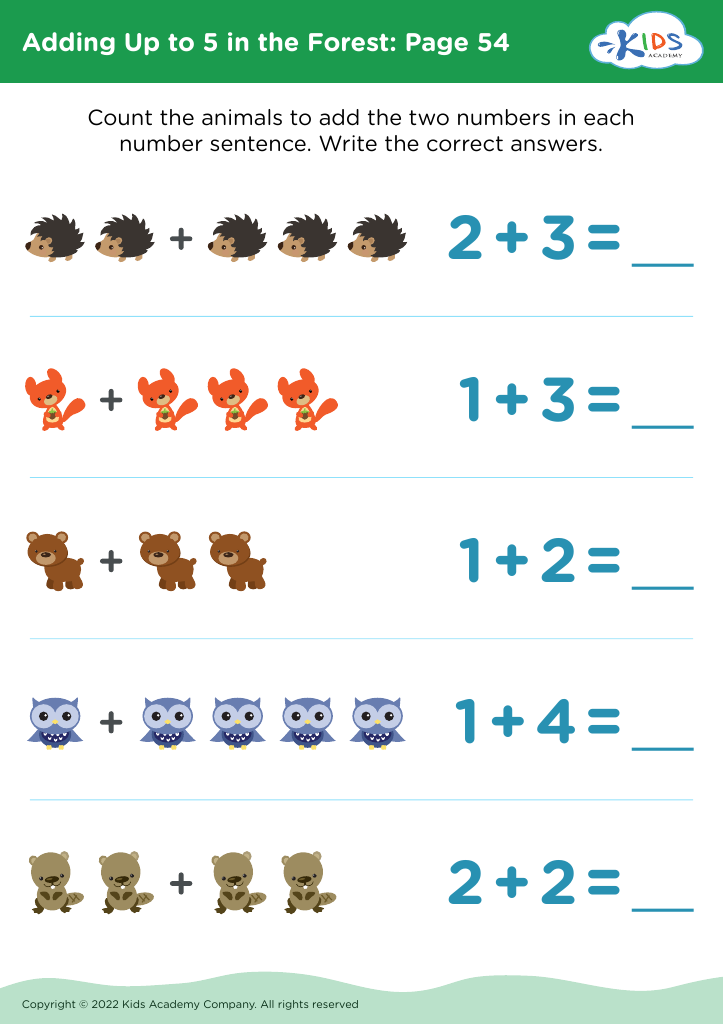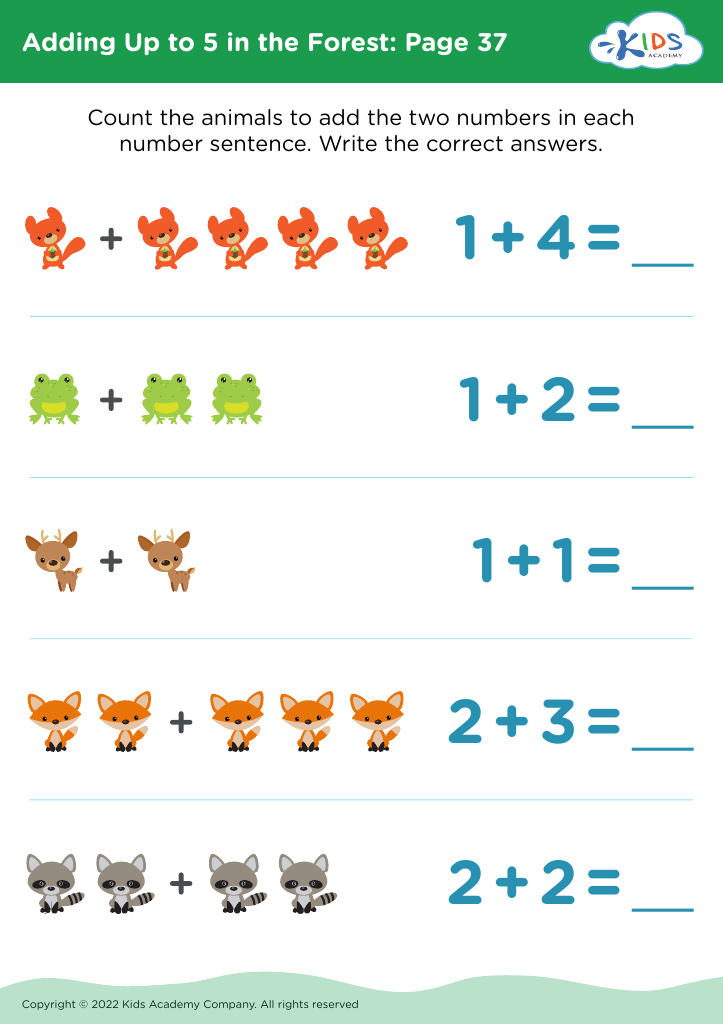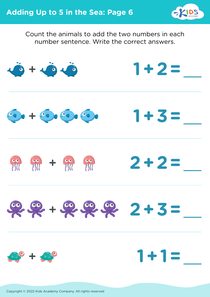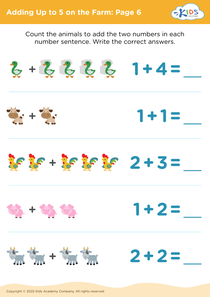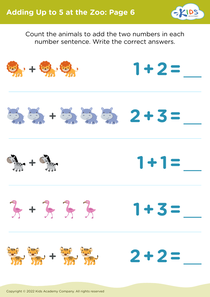Nature appreciation Adding in the Forest Worksheets for Ages 3-4
5 filtered results
-
From - To
Introduce your little ones to the enchanting world of math and nature with our "Nature Appreciation Adding in the Forest Worksheets" designed for ages 3-4. Perfect for preschoolers, these vibrant worksheets turn addition practice into a playful adventure in the forest. Children will delight in counting woodland creatures and natural elements, fostering both their numeracy skills and an appreciation for the great outdoors. With engaging illustrations and simple exercises, learning addition becomes a fun and informative experience. Unlock your child's potential and nurture a love for nature with these captivating, educational worksheets. Download now and watch young learners flourish!
Nature appreciation, especially in a forest setting, is incredibly beneficial for young children aged 3–4 and should be a significant focus for parents and teachers. At this developmental stage, children are highly receptive to new stimuli, and experiencing the natural world fosters their overall growth.
Firstly, exploring nature enhances sensory development. In a forest, children can engage all five senses: they see the vibrant colors of leaves and flowers, hear birds chirping and wind rustling through trees, touch various textures like bark and moss, and occasionally might smell wildflowers or pine. Such sensory experiences build neural connections and improve brain function.
Secondly, nature appreciation encourages physical activity and healthy habits. Running, jumping, and climbing in a forest environment not only improve gross motor skills but also instill a love for outdoor games, countering the sedentary lifestyle that screens often promote.
Emotionally and psychologically, nature has a calming effect and reduces stress and anxiety. Time in a forest can boost creativity and reduce symptoms associated with attention deficiency. Social skills also develop as children play collaboratively, solve problems together, and learn about ecology and respect for living beings.
By immersing children in nature, parents and teachers can nurture curiosity, environmental stewardship, and a strong foundational appreciation for the world around them—qualities that benefit them throughout their lives.

